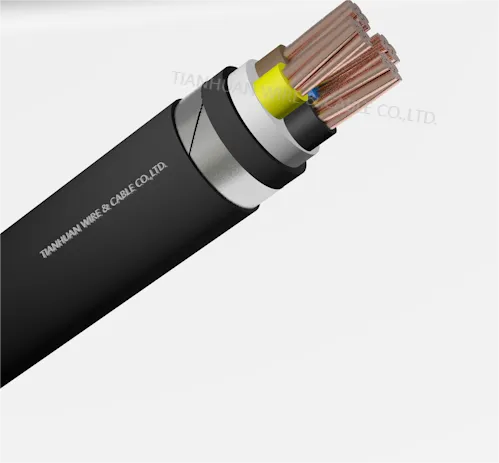
mineral insulated cable factory
Mineral Insulated Cable Factory A Pioneering Solution for Modern Electrical Standards
In the rapidly advancing realm of electrical engineering, the need for efficient, safe, and durable cabling solutions is paramount. One such innovative product that has garnered significant attention is mineral insulated (MI) cable. These cables, which are designed to withstand extreme conditions, are composed of copper conductors surrounded by a highly insulating mineral material, typically magnesium oxide. The manufacturing of these cables represents a crucial aspect of modern industrial infrastructure, making the establishment of a mineral insulated cable factory a significant endeavor.
Understanding Mineral Insulated Cables
Mineral insulated cables offer a unique blend of properties that make them ideal for a variety of applications, particularly in industries that require high levels of safety and reliability. Their ability to perform in high temperatures and resist fire makes them suitable for use in building wiring, power plants, and even in offshore applications, such as oil rigs. With their copper conductor encased in mineral insulation, MI cables provide a durable solution that can withstand mechanical stresses and harsh environmental conditions.
The Manufacturing Process
The production of mineral insulated cables is a meticulous process requiring precision and high-quality materials. The first step involves sourcing high-purity copper for the conductors, which is essential for ensuring optimal electrical conductivity. The copper is then drawn to the desired gauge before being formed into the cable’s core.
Once the conductors are prepared, the next stage involves the application of magnesium oxide. This mineral is not only an excellent insulator but also capable of withstanding high temperatures and pressures. The cables are assembled in a controlled environment where the magnesium oxide is packed tightly around the copper core. This step is crucial as it ensures that there are no air pockets that could compromise the insulating properties of the cable.
After the insulation is applied, the cables are encased in a robust metal sheath, usually made of copper or stainless steel. This metallic layer provides additional protection against mechanical damage and environmental factors. Quality control measures are embedded throughout the manufacturing process, ensuring that each batch of cables meets stringent safety and performance standards.
mineral insulated cable factory

The Role of Technology
Modern mineral insulated cable factories leverage advanced manufacturing technologies to enhance production efficiency and maintain high quality. Automation has become a key feature, allowing for greater precision in the wiring processes and reducing the risk of human error. Moreover, computer-aided design (CAD) tools are employed to optimize cable sizes and configurations tailored to specific applications.
Furthermore, energy efficiency is a central concern in contemporary manufacturing practices, and MI cable factories are no exception. Techniques such as recycling scrap material, optimizing energy consumption in machinery, and employing sustainable practices in sourcing raw materials contribute to a lower environmental footprint, which aligns with global sustainability goals.
Market Demand and Applications
The demand for mineral insulated cables is rapidly growing, fueled by increasing safety regulations and the global push for more reliable electrical infrastructure. Industries ranging from construction to energy are recognizing the benefits of MI cables. For instance, in high-rise buildings, the fire resistance of these cables is not just advantageous but often required by building codes. Similarly, in power generation facilities, the capability of MI cables to operate under extreme temperatures ensures uninterrupted service and safety.
Conclusion
The establishment of a mineral insulated cable factory is not merely an industrial venture; it is a crucial step towards supporting modern electrical standards and safety practices. With their unique characteristics and numerous applications, mineral insulated cables are poised to play a vital role in the future of electrical engineering. As technology progresses and the demand for resilient electrical components increases, MI cable factories will undoubtedly continue to innovate, ensuring that they meet the challenging requirements of various industries around the globe.
-
Reliable LIYCY Cable Solutions for Low and Medium Voltage ApplicationsNewsJul.14,2025
-
Premium Overhead Electrical Wire Solutions for Low and Medium Voltage ApplicationsNewsJul.14,2025
-
Innovative XLPE Electrical Cable Solutions for Modern Low and Medium Voltage NetworksNewsJul.14,2025
-
High-Quality Ethylene Propylene Rubber Cable – Durable EPDM Cable & 1.5 mm 3 Core OptionsNewsJul.14,2025
-
Exploring the Versatility of H1Z2Z2-K 1X4mm2 Cables in Modern ApplicationsNewsJul.14,2025
-
Uses of Construction WiresNewsJul.14,2025
-
Types of Neoprene CableNewsJul.14,2025














